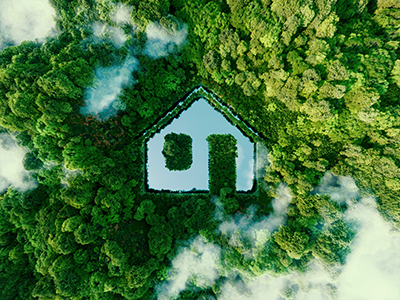Sustainability Matters: The Eco-friendly Aspects of Our C16 and C24 Structural Timber

As climate change and environmental concerns continue to be at the forefront of global issues, the construction industry is also stepping up to do their part.
Sustainable construction practices are now being widely adopted, and companies are starting to manufacture products that are not only strong and durable but also eco-friendly. Timber is one of the materials that has been gaining popularity in the construction industry as it is renewable and has a significantly lower carbon footprint compared to other building materials. In this blog post, we will take a closer look at the eco-friendly aspects of our C16 and C24 structural timber.
1. The Sustainability Factor
Sustainability is a critical aspect of our timber products. Our C16 and C24 structural timber is sustainably sourced from carefully managed forests that conform to strict environmental standards. The forests we source our timber from are certified by various accreditation bodies such as FSC and PEFC. These certifications guarantee that the forest is managed responsibly with consideration to ecological, social and economic aspects. Our customers can rest assured that our timber is sourced sustainably from forests that are not overexploited, and their ecosystems are conserved.
2. Durability and Strength
Our C16 and C24 structural timber is known for its strength and durability, making it an excellent choice for building structures such as roofs, walls, floors, and framing. When compared to other building materials, our timber has a significantly lower carbon footprint. The manufacturing process of timber requires less energy and has less impact on the environment when compared to other materials such as steel or concrete. Additionally, timber structures have lower on-site wastage and have a faster construction time that helps to reduce CO2 emissions.
3. End of Life Disposal
Our timber products are biodegradable and compostable, meaning that the timber can decompose without harm to the environment. In contrast, steel and concrete need to be disposed of carefully as they cannot decompose on their own. Moreover, our timber can be reused and repurposed giving it a longer lifespan than other building materials. Timber structures can be disassembled easily and the timber can be recycled to create new products, which helps reduce waste and limit environmental damage.
4. Energy Efficiency
Timber has natural insulation properties. When used in the construction process, it helps regulate internal temperatures of buildings, reducing energy consumption and carbon emissions in the process. This makes timber an excellent choice for green buildings and LEED certified structures.
5. Air Quality
Timber products have the added benefit of improving indoor air quality. Unlike other materials that can emit volatile organic compounds (VOCs), timber is a natural absorber of VOCs and helps reduce indoor air pollution. As a result, buildings constructed with timber have a healthier indoor environment and provide added benefits to the occupants.
Our C16 and C24 structural timber is an excellent choice for building structures that are eco-friendly and sustainable. The sustainable sourcing of our timber ensures responsible environmental stewardship, while the durability and strength of our products make them an excellent choice for building structures. The end-of-life disposal of our products is also environmentally responsible, making it an excellent green building material. As we move towards sustainable construction practices, it's essential to choose building materials that are not only strong but also eco-friendly. Using our C16 and C24 structural timber will help you create structures that are strong, durable, and environmentally responsible.

